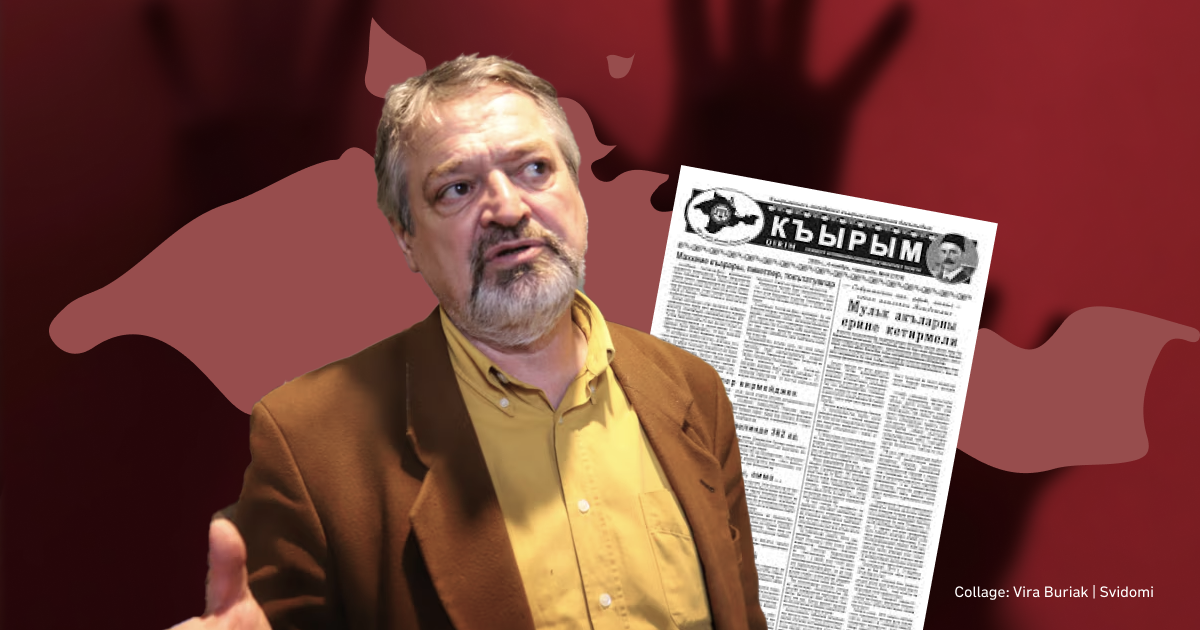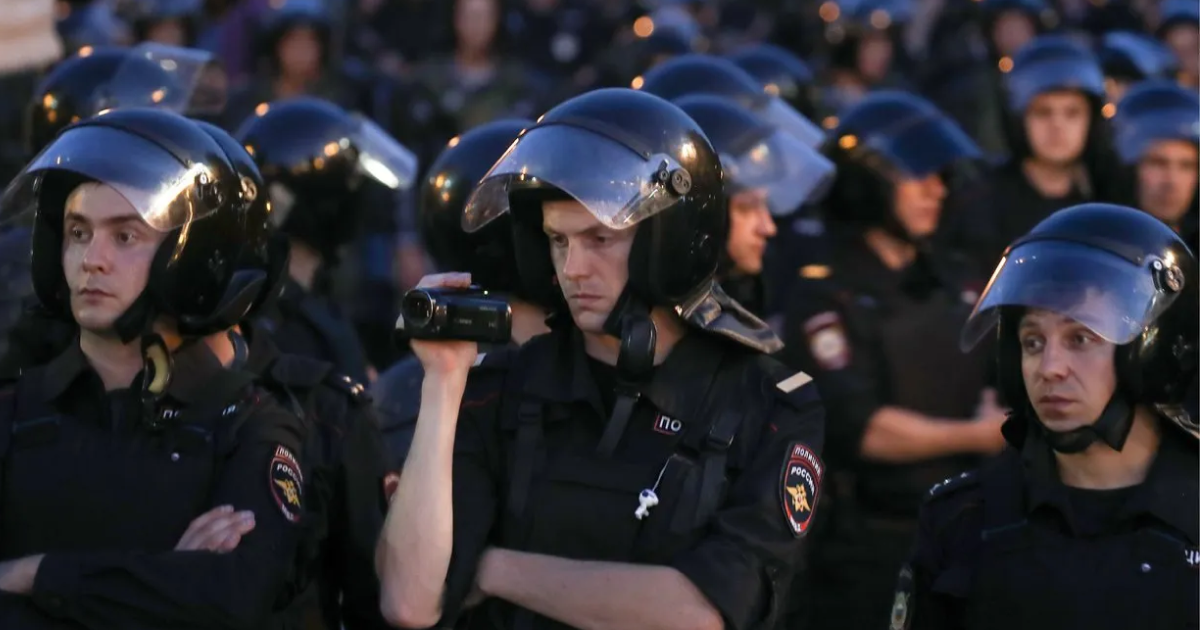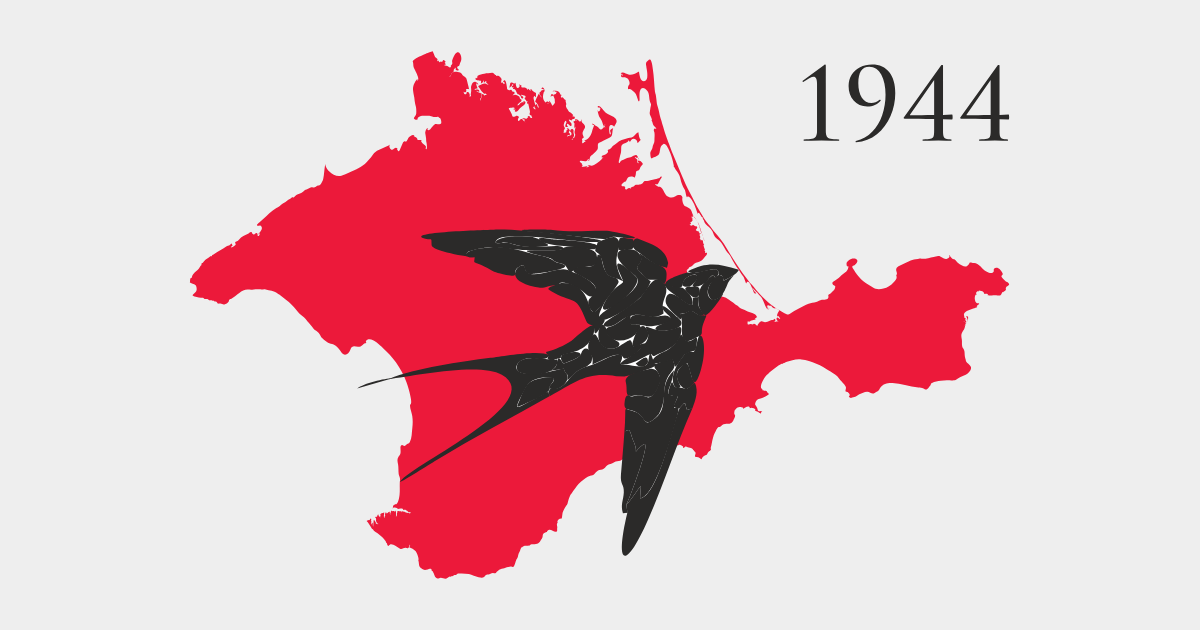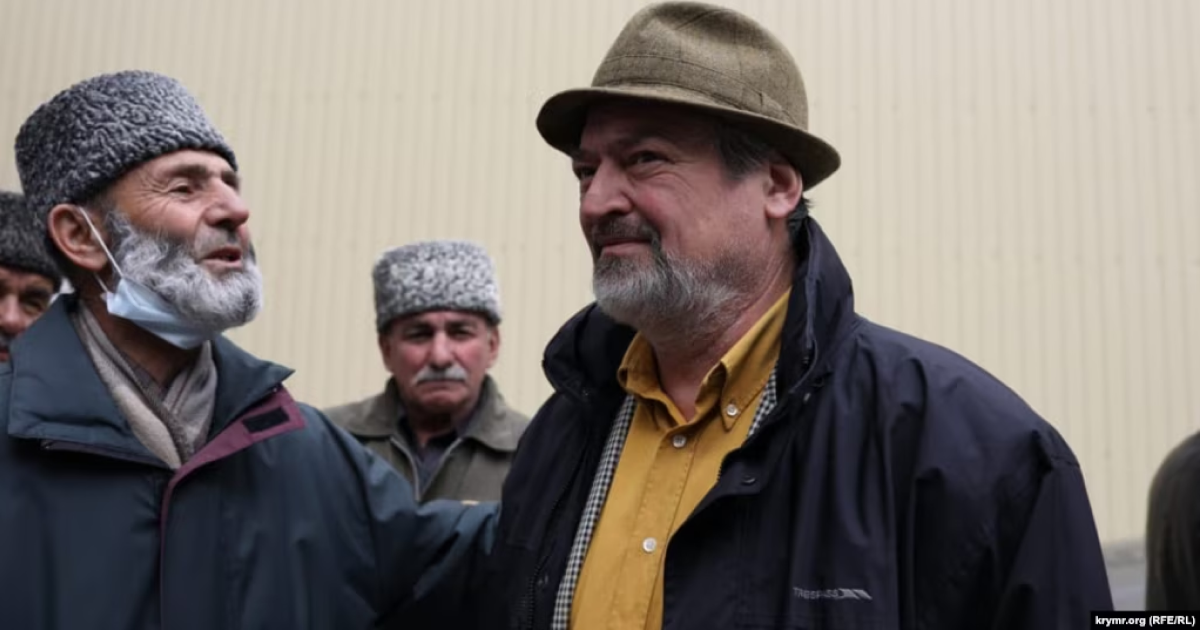Russians persecute the editor-in-chief of QIRIM newspaper in the temporarily occupied Crimea (Qırım): what is going on?

What happened?
On May 17, Russian security forces searched the house of the editor-in-chief of the newspaper QIRIM, Bekir Mamutov, in the temporarily occupied Crimea (Qırım). The house of Seyran Ibragimov, a newspaper employee, was also searched.
According to QIRIM media, after the searches at private homes, the security forces took people to the newspaper's editorial office, where they also conducted searches. During the searches, security forces confiscated equipment, including computers and telephones.
The searches were carried out by Russian special forces from the so-called Centre E, a unit of the Russian Interior Ministry that deals with countering extremism. It is this unit that conducts searches of Crimean residents.

According to lawyer Edem Semedlyayev, Russian security forces put Seiran Ibragimov in a car and took him from the building of the so-called 'Ministry of Internal Affairs' in an unknown direction. Bekir Mamutov and Seyran Ibragimov were later released.
The searches were carried out because the newspaper published an article on why Crimean Tatars cannot take part in the war against Ukraine on the side of the Russian Federation. Now, the editor-in-chief of the newspaper QIRIM is being charged under two administrative articles — the first part of Article 20.3.3 of the Administrative Code of the Russian Federation (on public actions aimed at discrediting the Armed Forces of the Russian Federation) and the ninth part of Article 15.13 of the Administrative Code of the Russian Federation (failure to provide or untimely provision by the editorial staff of a media outlet, broadcaster or publisher of information on the receipt of funds, the provision of which is provided for by the country's legislation on the media).
These arrests and searches took place on the eve of May 18, the Day of Commemoration of the Victims of the Crimean Tatar Genocide. The activists planned to commemorate the victims of deportation near the so-called Crimean Federal University and to visit the monument to the victims of the deportation of Crimean Tatars in Salgirka Park.

However, in the temporarily occupied Crimea, the Russian occupation authorities "warned" the Crimean Tatars not to commemorate the victims. In particular, the Russians banned gatherings of more than 20 people.
On May 24, human rights activist Abdureshit Dzhepparov said that the administrative case against Bekir Mamutov, editor-in-chief of the newspaper QIRIM, could be reclassified as a criminal case.
As he noted in a commentary for QIRIM Media, in the first case, the sanctions provide for a fine of up to 50,000 rubles (around USD 565 — ed.), but the peculiarity of this article is that if there are similar offences within a year, the current administrative case will be reclassified as a criminal case.
Dzhepparov also noted that the second article (the first part of Article 20.3.3 of the Administrative Code of the Russian Federation) provides for a fine of up to 100 thousand rubles, as well as the possible confiscation of the objects with which Bekir Mamutov worked.
Persecuted not for the first time
In 2021, the so-called 'court' in the temporarily occupied Crimea fined Bekir Mamutov 4 thousand rubles (around USD 45 —ed.) for publishing a report by the UN Secretary-General mentioning the Mejlis of the Crimean Tatar people. The Mejlis was banned in Russia in 2016.

The representative body of the Crimean Tatars was recognised as an alleged extremist organisation for 'violating the territorial integrity of Russia and intimidating people'.
What is happening to the newspaper?
The newspaper QIRIM is the only publication in the Crimean Tatar language in Crimea. It has been published for almost 35 years. It was first published in 1989 when Crimean Tatars began to return to Crimea from deportation.

One issue of the newspaper was not published due to searches of the editorial office and the homes of Bekir Mamutov and Seiran Ibragimov. Human rights defender Abdureshit Dzhepparov suggests a risk that Roskomnadzor (the body that censors media and social networks in the Russian Federation — ed.) will close QIRIM.


